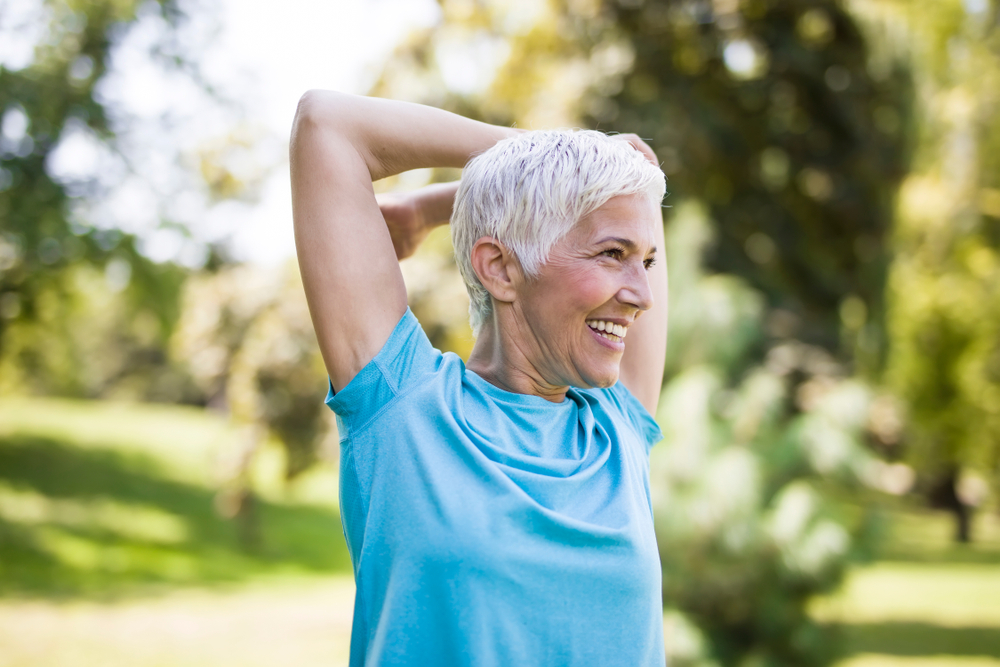Vitamin D and Vitamin K: the power of two vitamins for women post menopause.

Women face a number of potential health risks once they enter the post menopause years. The term ‘post menopause’ means they have had no menstruation for one year. However, as oestrogen levels naturally decline, and this becomes sharper post menopause, women are more at risk from cardiovascular issues, and the bone thinning disease, osteoporosis.
Researchers in the US[1] have recently reviewed 21 studies on the role of vitamin D and vitamin K, combined, in treating post-menopausal women. They were mainly assessing randomised controlled trials. Scientists found that the two vitamins worked synergistically to help lower inflammation overall in the body, improve muscle and bone strength, reduce calcification in the heart vessels and help maintain healthy blood pressure readings.
The studies all used supplements of vitamin D3 ranging from 50 iu to 4,500 iu daily and vitamin K1 with doses ranging from 80 µg to 1 mg per day. Whilst vitamin K1 is found in green leafy vegetables and other sources, many people are not eating sufficient of these foods. Additionally, we know that there is insufficient vitamin D in food sources to prevent deficiency symptoms. This means supplementation of vitamin D is widely recommended.
The researchers also acknowledged that access to healthy, fresh foods can sometimes be limited in older people and overall calorie intake often falls, leading to potential deficiencies. Both forms of supplements are widely available and inexpensive, which could be helpful for preventing future health issues in this cohort.
Sports functional food and supplements support female cyclists.

Every sport has it own unique and specific requirement for feeding and supplementation before and during training and competition. However, cycling presents some heavy physical challenges with substantial aerobic demands, and often long times on the bike during events.
A team of researchers[2] in Spain assessed the frequency and type of supplements used by female road cyclists. The analysts looked at the intake of 316 athletes and found they took, on average, seven supplements. This was a combination of functional foods such as sports bars (77.5%), sports gels (61.4%) and caffeine (49.1%). Other notable supplements were mixed macronutrient preparations which would have included some protein, fats and carbohydrate, and beta-alanine (an amino acid). They also contain sodium bicarbonate (which helps decrease the amount of acid in muscles, thereby reducing muscle fatigue and pain) and creatine (to help with muscle building and repair).
However, the researchers also noted limited intake of supplements such as creatine, plus other potential performance enhancing products. They cited the need for robust randomised controlled trails, to include potentially ergonomic supplements such as beetroot, to provide information and reassurance of their potential to aid performance.
Low vitamin D levels may increase risk of Alzheimer’s Disease.

Research is fast uncovering the growing importance of having optimal vitamin D levels to help protect against some of our most common degenerative diseases. A new study[3] has found a potential correlation between low vitamin D and an increased risk of developing Alzheimer’s disease. It’s already known that 60 to 80% of all cases of dementia are caused by Alzheimer’s.
Research is still uncovering the exact mechanisms of progression and causes of Alzheimer’s (although knowledge is growing rapidly). However, the presence of amyloid plaques are always found in patients, plus there are changes in the neural pathways. Besides this neurodegeneration, oxidative stress and neuro inflammation are also present. Since there are vitamin D receptors in the brain, research has found a complex mechanism by which it can influence both pathologies.
Low levels of vitamin D were noted to be less than 25 ng/ml. Many studies have confirmed levels should be above 50 ng/ml and even higher in certain situations.
Whilst the sun is still out, many people will be topping up vitamin D levels from the UV rays hitting their skin. However, as soon as Autumn starts to appear, then everyone would be well advised to take a supplement and continue throughout the winter months.
[1] Marius Emil Rusu et al. Investigating the effects and mechanisms of combined vitamin D and K supplementation in post menopausal women: An up-to-date comprehensive review of clinical studies. Nutrients 2024, 16(14), 2356
[2] Garcia-Duran J et al. Sports supplement consumption in 316 federated female road cyclists. Nutrients.2024, 16(15), 2563
[3] Rizaldy Taslim Pinzon et al. The Egyptian Journal of Neurology, Psychiatry and Neurosurgery, 59 Article number: 88(2023)























Add comment